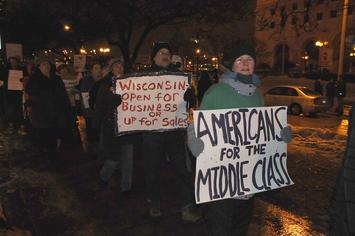
Predictably, politicos and commentators spent much of 2020 debating why working-class voters supported Trump and how the Democrats could win them back. Although we’ve occasionally contributed to these conversations, we’re also getting tired of them. They tend to envision “the working class” as if it were one group with a well-defined set of interests, and worse, they treat working-class people as a marketing problem. These habits reflect not only the commentators’ distance from the working class but also, for many, a sense of meritocratic superiority to people they view as deluded, foolish, stupid, or even amoral. If we want to improve the lives of the working class, and especially if we want to heal the divisions of American political and public life, we need to reframe the problem.
That should start by resisting any effort to define the working class in any singular way. Simplistic definitions fuel both stereotyping and resentments. Defining based on occupation or income highlights important differences in economic interests, but it doesn’t address the resentments that even many fully-employed, unionized, economically-comfortable working-class people feel in the U.S. today. To define the working class based on the college degree, as many pollsters do, ignores the complex array of forms, amounts, qualities, and outcomes of education. Focusing on one variable, like education, might be necessary in polling, but it erases the relationships among education and occupation, social status, and cultural patterns. Electricians and plumbers may lack college degrees, but their specialized training yields them secure and well-paid work as well as pride in their blue-collar status. Meanwhile, K-12 teachers often have graduate degrees but earn less than plumbers or electricians. If we link class with unions, a common (if outdated) assumption, then we might also note that teachers may be more likely belong to active unions than many industrial workers these days.
One illustration of the problem of simplistic definitions is the either/or debate about how to appeal to “the working class” as a voting bloc: either promote economic populism or talk about racial justice, either embrace the dignity of work or value the dignity of marginalized people. These options suggest that the working class is either white, blue-collar, and struggling economically or Black and Latinx and focused on racial rather than economic justice. If we reject this false choice and envision a working class that includes all of these people, one that might not respond as a bloc to any one political strategy or message, it can seem like we’re ignoring class altogether. Addressing working-class concerns – economic, practical, but also social and cultural – requires more complex thinking about class, culture, and policy.
It doesn’t help that discussions about working-class voters so often focus on how politicians should talk rather than on what they should do. That’s part of why we appreciated the invitation to contribute to a forum in Social Policy, due out next week,to suggest what the Biden administration could do to help the working class. Simply framing the question in terms of policy rather than politics is a step in the right direction.
We recommended a few fairly obvious actions, starting with getting the coronavirus under control, a concern for everyone but especially for the working class. Even before the pandemic, many working-class people had limited access to good health care, and they were more likely to have underlying medical problems that made them vulnerable to COVID. Contrary to the old blue-collar stereotype, most working-class jobs today are in the service industry, including many of the jobs we now deem “essential” – grocery clerks, nursing assistants, janitors, delivery drivers, postal workers. This has put many workers at risk. Others face economic risks because of lost jobs. To address the needs of the working class, we need to stop the spread of the virus and provide substantial economic relief to ensure that millions of Americans with little or no savings will not lose their homes or go hungry.
Read the rest of this piece at Working Class Perspectives.
Sherry Linkon and John Russo are affiliates of the Kalmonovitz Initiative for Labor and the Working Poor at Georgetown University and the authors of Steeltown U.S.A.: Work Memory in Youngstown.
Photo credit: Marc Tasman via Flickr under CC 2.0 License.












